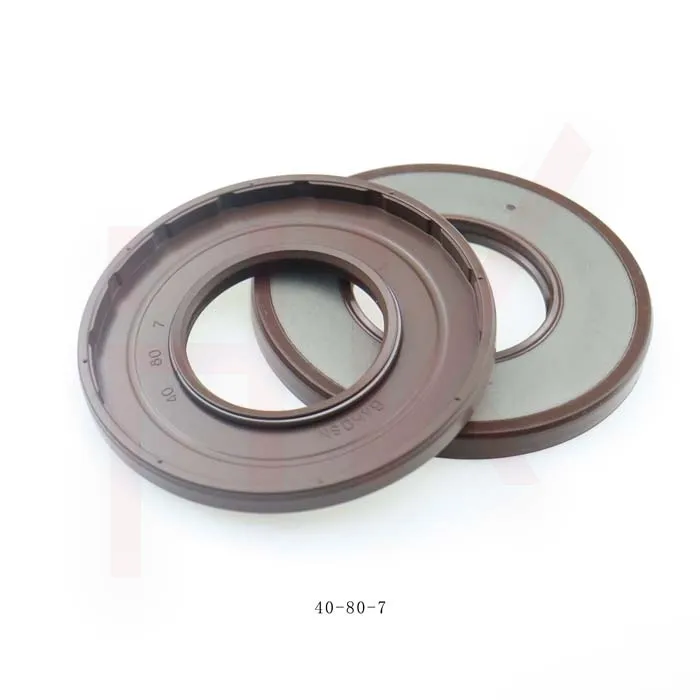Nov . 19, 2024 23:03 Back to list
oil pump seal
Understanding Oil Pump Seals Importance and Functionality
Oil pump seals are vital components in automotive and industrial applications that help ensure the efficient operation of oil pumps. They play a crucial role in maintaining the integrity of the oil system by preventing leaks and contamination, which can lead to serious engine or machinery failures. This article will delve into the importance, types, and maintenance of oil pump seals.
The Importance of Oil Pump Seals
Oil pumps are responsible for circulating oil throughout an engine or mechanical system. This oil lubrication is essential for reducing friction between moving parts, preventing wear, and helping to dissipate heat. However, without effective sealing, oil can leak out, leading to inadequate lubrication, overheating, and potential damage. Thus, oil pump seals are crucial in ensuring that the oil remains contained within the system.
Additionally, oil pump seals help to prevent external contaminants, such as dirt and moisture, from entering the oil system. Contaminants can degrade the quality of the oil and cause damage to internal engine components. A reliable seal ensures the longevity and efficiency of the entire oil system.
Types of Oil Pump Seals
There are several types of oil pump seals, each designed for different applications and operating conditions. The most common types include
1. Lip Seals These seals consist of a flexible lip that makes contact with the shaft. They are often made from rubber or polymer materials, which provide excellent flexibility and resistance to wear and temperature variations.
2. O-Rings O-rings are circular seals that fit into a groove and compress against two mating surfaces. They are widely used due to their simplicity and effectiveness in preventing leaks across a variety of applications.
3. Mechanical Seals Often used in high-pressure applications, mechanical seals consist of two flat surfaces that press against one another. They provide a very reliable seal, although they can be more complex and expensive.
oil pump seal

4. Gaskets Gaskets are flat seals made from various materials that fill the space between two or more surfaces to prevent leakage. They are commonly used in conjunction with oil pump seals to provide additional sealing capability.
Maintenance of Oil Pump Seals
Proper maintenance of oil pump seals is essential for optimal performance. Here are a few tips to ensure the longevity of oil pump seals
- Regular Inspection Periodically check for oil leaks around the seal areas. This can provide early indications of wear or damage.
- Replacement Seals should be replaced at regular intervals or whenever other oil system components are serviced. Aging seals can harden and become brittle, reducing their effectiveness.
- Use Quality Parts When replacing seals, choose high-quality products designed for your specific application. Cheaper alternatives may not provide the same level of protection.
- Check for Contaminants Ensure that the oil being used is clean and free from contaminants, as these can damage seals over time.
Conclusion
Oil pump seals are essential for maintaining the integrity of lubrication systems in engines and machinery. By preventing oil leaks and contamination, they contribute significantly to the performance and longevity of the entire system. Understanding the types of seals available and how to maintain them is crucial for anyone involved in automotive or industrial machinery maintenance. Regular inspections and proper replacements of oil pump seals can save costly repairs and ensure the smooth operation of engines and equipment.
-
TCN Oil Seal Metal Ring Reinforcement for Heavy Machinery
NewsJul.25,2025
-
Rotary Lip Seal Spring-Loaded Design for High-Speed Applications
NewsJul.25,2025
-
Hydraulic Cylinder Seals Polyurethane Material for High-Impact Jobs
NewsJul.25,2025
-
High Pressure Oil Seal Polyurethane Coating Wear Resistance
NewsJul.25,2025
-
Dust Proof Seal Double Lip Design for Construction Equipment
NewsJul.25,2025
-
Hub Seal Polyurethane Wear Resistance in Agricultural Vehicles
NewsJul.25,2025
-
The Trans-formative Journey of Wheel Hub Oil Seals
NewsJun.06,2025
Products categories
















